Clean Water

Water is life. For many communities, clean water is identified as the first priority in their development strategy and impacts health, education, agriculture, and more.

Water is life. For many communities, clean water is identified as the first priority in their development strategy and impacts health, education, agriculture, and more.
We believe that every person should have access to clean drinking water. By accessing new water sources and building water containment and delivery systems, we’re able to immediately improve infant mortality rates, increase girls’ participation in education, and expand agricultural production in areas most heavily affected by drought.
Our clean water program are designed to uniquely fit each community’s needs. We collaborate with local teams to create solutions using local building practices, workers, and materials, and we transfer necessary technical skills for water-system maintenance. We are committed to innovative, sustainable action toward SDG 6.
The September 8, 2023 earthquake resulted in significant damage to water infrastructure. Learn more about how you can support sustainable reconstruction.
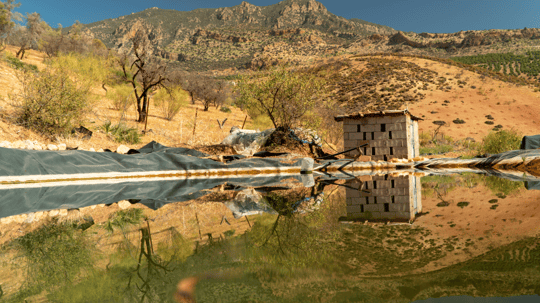
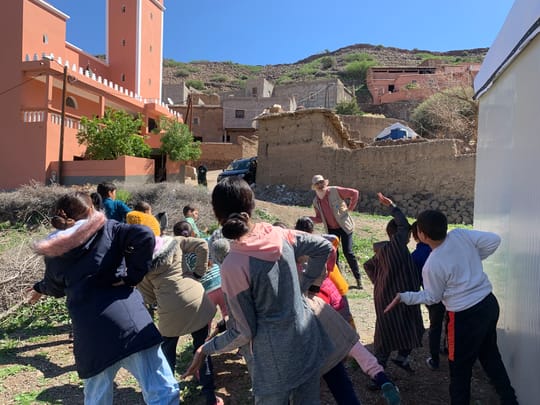
When communities have access to clean water, it significantly impacts health and wellbeing. According to a 2022 report by the WHO/UNICEF Joint Monitoring Programme for Water Supply, Sanitation and Hygiene, only 62.17% of rural households in Morocco have access to safely managed drinking water; 45.86% have access to safely managed sanitation; and 64.70% have access to materials for basic hygiene.
By providing access to clean water sources for drinking, sanitation, and hygiene, we invest in prevention. Water borne illnesses are the leading cause of disease, and water infrastructure exponentially decreases infant and child mortality rates, general illness, infection rates, and other critical metrics for public health.
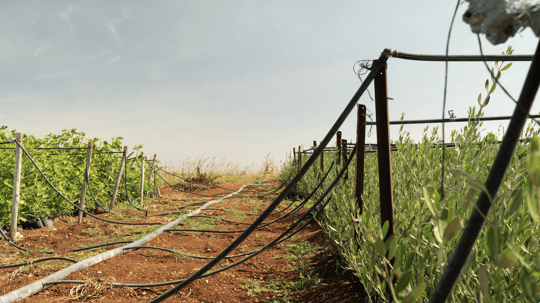
The Moroccan agricultural sector is the highest consumer of water resources, far exceeding household use. Ongoing drought, poor landscape management adaptation, soil degradation, and low rainfall all contribute to the increased need for well-designed irrigation in Moroccan agricultural systems, particularly in mountainous regions.
In many cases, when villages lack water infrastructure for irrigation, agricultural production decreases significantly or totally. This is a pronounced factor in urban migration, rural poverty, and land loss.
Irrigation ensures food and income security across farming households and communities. Ideally, improved irrigation systems also provide a pathway for using traditional methods of agriculture to regenerate degraded land, improve poor soils, and expand production.

Our adaptive management, supported by gathering and sharing data to enable group decision-making, directly enhances sustainable water use.
Access to bathrooms with running water is a significant factor in girls’ attendance in middle and high school. When bathrooms are built and hygiene options in public spaces are expanded, girls’ education rates increase in rural areas.
Discover the benefits of our Clean Water projects.
Our projects have benefitted people, families, and communities. Read some of their stories.
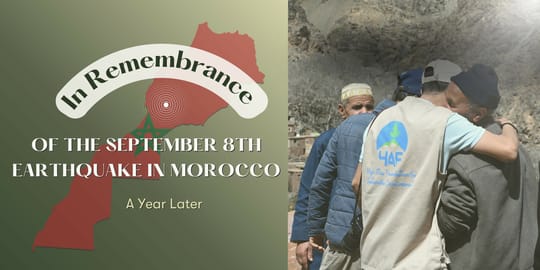
As the one-year anniversary of the September 8th earthquake nears, the High Atlas Foundation (HAF) alongside community partners will come together to honor the painful losses, the healing, and the collective rebuilding with one and all here in Morocco, and around the world.
Get more in-depth information about this program.
High Atlas Foundation supports a variety of sustainable development projects within Moroccan communities that may interest you.
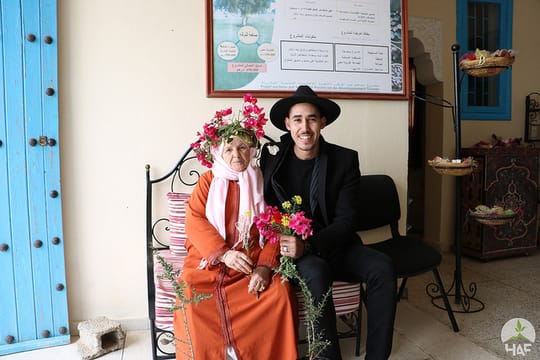
We invite you to be part of a new era of sustainable development across Morocco. Explore additional ways to become involved in our work.